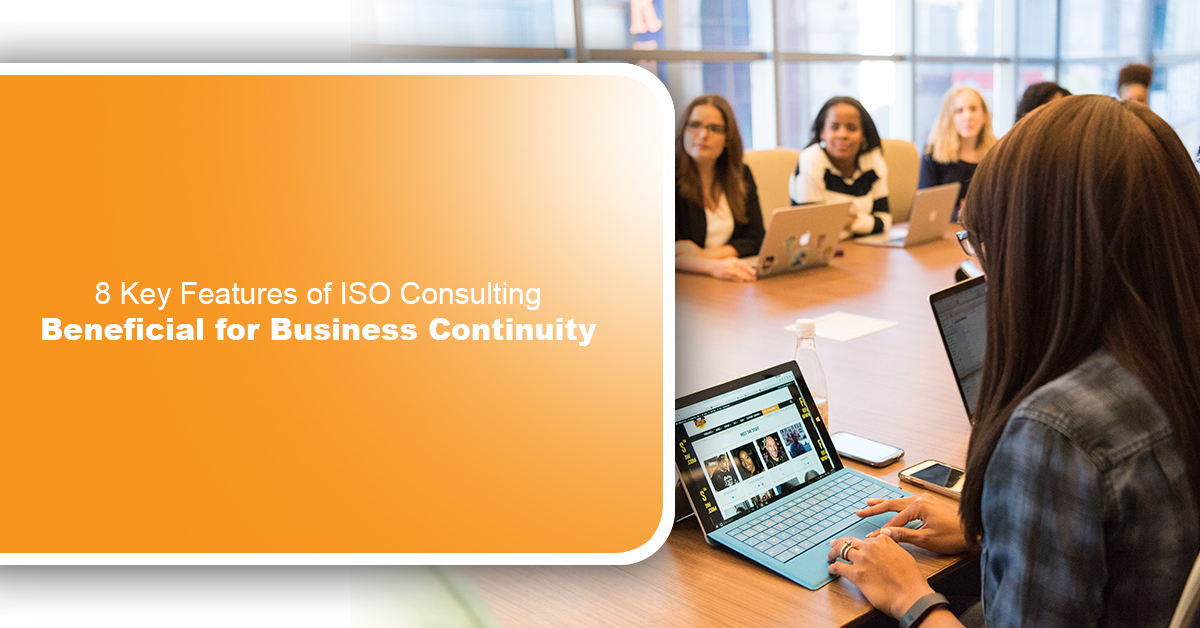
A successful business venture is a product of the right set of strategies and courses of action taken for quality management, risk assessment, and prevention. Some of the key factors determining a company’s long-term success are – customer satisfaction followed by customer loyalty, information security, occupational health and safety, and environmental sustainability programs. ISO standards have designed benchmarks for each of the aspects mentioned above. Companies acquire internationally acclaimed certifications to gain a competitive edge.
To receive ISO accreditation, one needs to comprehend and accomplish the precise set of clauses standardised by the particular standard. Professional ISO consulting centres offer expert guidance on understanding the compliance and requirements mandated by individual standards.
Unfortunately, many people are unaware of the significant features of ISO consultation as many online forums offer easy-to-access templates for completing the certification process. Without proper knowledge and prior experience, companies often fail to achieve accreditation by using online templates and receiving unuseful guidance.
The following blog has discussed the key features of certified consultation service, which comes with an array of advantages –
Which Key Features of ISO Consulting are Beneficial for Business Continuity?
1. Professional guidance
The first phase of pursuing an ISO standard is to understand its purpose, terms, and requirements. An ISO standard typically has the following requirements –
● Settlement of objectives
● Scope of the implementation
● Leadership
● Resources
● Risk assessment
● Implementation
● Management responsibility
● Monitoring, analyses, and reviews
● Improvement and modification
These common criteria have independent elements based on individual standard types. The consultants have industry experience and the right amount of expertise to help you understand by simplifying the terms and clauses. They show you the ways to meet each criterion level after you ensure your level of comprehension.
2. Support for gap analysis
After the predominant stage of ISO certification, it is time for conducting thorough research to determine the gap between the present standard of the system and the required level. A gap analysis checks the current situation regarding the fundamental mission and vision of the company. Accordingly, it highlights the gap to enable management to take the correct set of actions. For fruitful conduct, the support of management and the organisational documents can help provide the desired outcome. ISO consulting professionals organise the process after carefully reviewing and consolidating main data and resources. It required an abundance of experience, which management often lacks.
3. Personalised models for gap filling
One widespread reason for hiring ISO consultation experts is because they offer personalized solutions. After analysing the gap and the major obstacles, the professionals design and streamline procedures to easily improve on any loopholes. The custom-made solutions augment the certification process and help companies to earn the certificate before the deadline. Instead of following the old structures for gap-filling, advisors create new models based on the present operations and requirements. If you choose to depend on the online frameworks, you might not match the exact requirement of your system with the available one. The consultants have previous experience working on similar problems. Therefore, they have better and more clear ideas regarding the particular gap type.
4. Training and guidance for internal audits and review meetings
ISO consultation comes with an internal audit feature. After the successful conduct of gap analysis and gap filling, companies smoothly implement a modified or new management system. The consultants organise audits from time to time and tell the leadership team about the same. They even help with the training of the management personnel for productive audit outcomes.
5. Documentation
One of the crucial parts of the certification is proper documentation. Companies often ignore that, which leads to several problems in making contingency plans. Documentation of the management roles and procedures helps future employees to get better ideas. The consultants are aware of the management of this process and ensure that the same is done with accuracy.
6. Readiness review
Before the registration, the final step is a readiness review, which is conducted to ensure 100% compliance with all the clauses. The consultancy offers this service so that companies attain their aim before the time.
7. System registration
Many consultancy firms help with the registration process. After completing all the internal procedures, they offer their insight into the registration process. Alongside, they provide references for choosing trustworthy external audit bodies.
8. Remote access
Today, ISO consultancy services are available online. Without paying a physical visit to the service centres, one can enjoy the same advantages and achieve a seamless certification journey.
Final words
To find a reliable and credible ISO consulting centre, one should consider checking ratings, reading reviews, and having enough research on the service provider’s portfolio. Invest time so that you do not have to pay unnecessary amounts in the future.
Hope, the aforementioned information proves helpful in accomplishing your certification journey sooner or later.

Get connected with us on social networks!